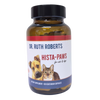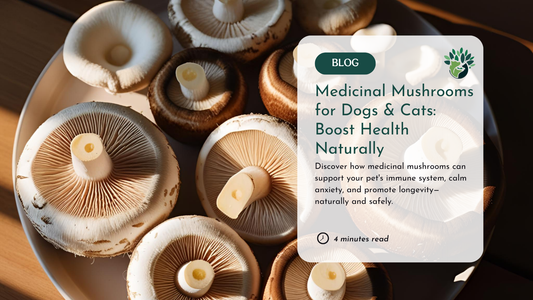Many of you may wonder, “Does my pet need a detox?” Detoxification is a natural bodily process, primarily carried out by the liver and gastrointestinal (GI) tract, to remove waste products and chemicals from the body. However, with modern environmental toxins present in our food, water, and air, our pets are exposed to more harmful substances than ever before.
Detox protocols can help by providing the body with the nutrients needed to eliminate these excess toxins. But here’s a crucial point: Do not start a heavy detox program if your pet is already sick. This can overwhelm their system, leading to more harm than good.
How Detoxification Works
The liver has two primary detox pathways: Phase 1 and Phase 2. If your pet is ill or their liver is overworked due to medications (like prednisone), Phase 1 may be producing toxic byproducts that Phase 2 is unable to process and eliminate. Starting a detox during this time can worsen the problem, as these toxins will remain in the body, potentially making your pet feel even sicker.
In addition, if your pet’s gut is “leaky,” meaning the lining is compromised, toxins can leak back into the bloodstream, exacerbating the issue.
Simple and Gentle Detox Solutions
Even if your pet is feeling unwell, there are gentle detox strategies you can implement. Start with the basics:
- Clean, Filtered Water: Tap water often contains chlorine, fluoride, heavy metals, and other harmful chemicals. Investing in a high-quality water filter, such as a Berkey, can dramatically improve your pet’s water quality. While a pitcher filter can be a good starting point, look for filters that remove heavy metals and cysts.
- Probiotics: High-dose probiotics, like the new shelf-stable option we’re offering, can help your pet’s gut detox naturally by supporting good bacteria. These bacteria produce anti-inflammatory compounds and help break down toxins.
- Fish Oil: Using fish oil at a relatively high dose can reduce overall inflammation, helping the liver eliminate toxins more efficiently.
- Fiber-Rich Vegetables: The fiber in vegetables acts like a broom in the gut, helping to sweep away toxins. This is particularly important for pets with leaky gut syndrome, as it helps remove waste from the body.
Advanced Detox Options
If your pet is stable, you can introduce more advanced detox supplements:
- Milk Thistle: A gentle liver detoxifier that can be used one week out of each month to support liver health.
- Activated Charcoal or Bentonite Clay: These absorb toxins in the gut, preventing them from being reabsorbed into the bloodstream. Use these at least two hours away from other supplements to avoid interference.
- Liposomal Glutathione: Known as the “master antioxidant,” it helps the liver push out toxins effectively. However, make sure your pet is healthy before starting this supplement.
You can find these protocols, along with more detailed information, in our free members area on my website. This is a great resource to explore health protocols for various common issues.
When to Start Detoxing
If your pet has been on medications or sick for some time, wait until they are stable before starting any detox program. Begin with probiotics and fish oil, and if tolerated well, slowly introduce supplements like milk thistle and liposomal glutathione.
If you’re not already doing so, start cooking fresh food for your pet, like The CrockPET Diet, which focuses on high vegetable content and clean ingredients. A clean diet is one of the most effective ways to help your pet detox naturally.
Final Thought
To sum it up, detoxing can help remove harmful toxins from your pet’s body, but it must be done carefully. If your pet is unwell, start with simple strategies like clean water, probiotics, and fish oil. As they stabilize, you can introduce more advanced detox supplements under the guidance of your veterinarian.
Remember, your pet’s best health starts in the bowl. By feeding high-quality food and incorporating gentle detox strategies, you can improve their overall well-being. For more information, check out our detox protocols and supplements on my website, or feel free to book a consultation with me to discuss a personalized plan for your pet.















